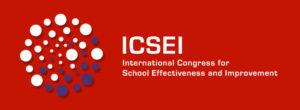New research on agency: A report out from the International Congress on School Effectiveness and Improvement (ICSEI)
by Kristen C. Wilcox
The topic of agency is not new to the education field and for good reason. NYKids, for example, has found that over the almost 20 years of positive outlier school studies we have conducted, agency is a common finding.
Agency has been defined in a variety of ways – and in one NYKids article, colleague Hal Lawson and I define it as “…a combination of people’s sense of intentionality and their perceived possibilities and opportunities.”
The extent to which leaders and frontline educators assert agency to meet learner needs has consistently been associated with better outcomes for youth as well as the educators who serve them. However, questions remain as to how policymakers, school and district leaders, and frontline educators address considerable challenges to asserting agency in the context of curriculum reforms.

At the International Congress on School Effectiveness and Improvement (ICSEI) (at which I presented on NYKids work), agency was on the radar. One session, chaired by Jim Spillane from Northwestern University and accompanied by discussant Amanda Datnow from UC San Diego, explored research emerging from England, Ireland, Scotland, and Wales – specifically related to curriculum “redevelopment and enactment” and “teacher and pupil agency.”
Agency in practice and policy: Where is P-12 education heading?
“How do local educators grapple with what giving student choice means for their practice?”
– Amanda Datnow (ICSEI, January 10, 2024)
Datnow’s question is one on many educators’ minds as encouraging student “voice” and “choice” has become a top concern in light of chronic absenteeism and generally anemic learner engagement with the traditional school curriculum — both issues making the list of the “worst” education news in 2023.
The papers presented at ICSEI explored issues related to what extent and how agency is centered in curriculum – including time constraints teachers face in taking more central roles in discussions of agency in the curriculum and engaging in important policy discussions.
As one audience member in this session pointed out, the education field is replete with reform initiatives and frameworks – oftentimes not explicitly linked or in sync with each other. And it is common for educators and youth to not be aware of or invited into the conversations shaping these initiatives and frameworks that inform what and how they learn.
The session raised both old and new questions including…
- How do we make sure that curriculum reform iterations and frameworks are connected in some way and their connections are made explicit?
- How are educators and learners part of making sense around curriculum changes and actively engaged as vital agents in the process?
Take-aways in the U.S. context
One take-away from research in different contexts around the globe is that we share more of the same issues than one might think despite our differences. A second, is that while we don’t always have a model of curriculum change available to us, merely surfacing agency as a topic of inquiry and for discussion among scholars and practicing professionals is an important contribution. For this – kudos to the ICSEI leadership team.
As NYKids embarks on our persistent and emergent positive outlier study this spring, one topic of inquiry is centered on curriculum revision processes and, as always, we will probe for evidence of opportunities for youth and educator agency in curriculum conversations. We will be sharing findings from this study soon and welcome you to check out NYKids ICSEI presentation slides describing NYKids work as a “backbone organization” for school improvement here.
Thank you for your continued interest in NYKids’ work. Stay informed on strategies to inform, inspire, and improve via our Facebook, X, Instagram, and LinkedIn. As always, we welcome your feedback on topics of interest for future blogs at nykids@albany.edu.
